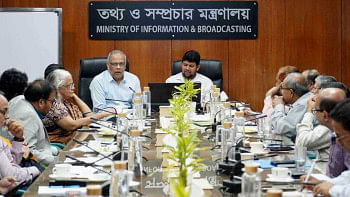Bangladesh needs internal political consensus first
Bangladesh must forge an internal political consensus to negotiate water sharing of trans-boundary rivers, the border treaty, and trade deficit with India, speakers told a discussion yesterday.
Otherwise, India will take advantage of a prolonged political weakness and dilly-dally on settling the issues extremely crucial for Bangladesh, they said.
“Bangladesh's concerns over river water sharing and border issues with India are related to its existence,” said former state minister for foreign affairs Abul Hasan Chowdhury. Negotiations with India would be much easier if there were political accord, he said.
A group of retired senior professionals called The Dhaka Forum organised the discussion at the capital's Brac Centre.
Though Bangladesh has assured all-out support to address India's security concerns, the latter has made empty promises on the Teesta water sharing and land-boundary treaties time and again since Indian premier Manmohan Singh's visit to Bangladesh in September 2011, said former ambassador M Serajul Islam.
The president of Bangladesh came back from India empty-handed without getting any specific timeframe for the signing of Teesta and border treaties, he said.
Shamsher Mobin Chowhdury, BNP's vice-chairman, said China funded and built a deep-sea port in Sri Lanka but it was not understandable why the same could not be done in Sonadia of Cox's Bazar despite China's interest.
Former ambassador Farooq Sobhan said construction, finance and operations of a deep-sea port in Bangladesh required major diplomatic efforts on how to deal with India and China because both were Bangladesh's economic and political partners.
India wants to emerge as a regional power and gets upset and feels insecure when Bangladesh purchases submarines from China and when China shows interest in building a deep-sea port in Sonadia, said Dr Dilara Chowdhury, a retired professor of Jahangirnagar University.
“Suspicion has made Indo-Bangla relations complex,” she said, adding that India would benefit in all respects with a vibrant democracy in Bangladesh but it had taken a wrong path by choosing one political party over the other.
Barrister M Amir-ul Islam and ex-state minister for foreign affairs Reaz Rahman, among others, spoke at the discussion moderated by Bangladesh Bank's ex-governor Dr Salehuddin Ahmed.

 For all latest news, follow The Daily Star's Google News channel.
For all latest news, follow The Daily Star's Google News channel. 



Comments